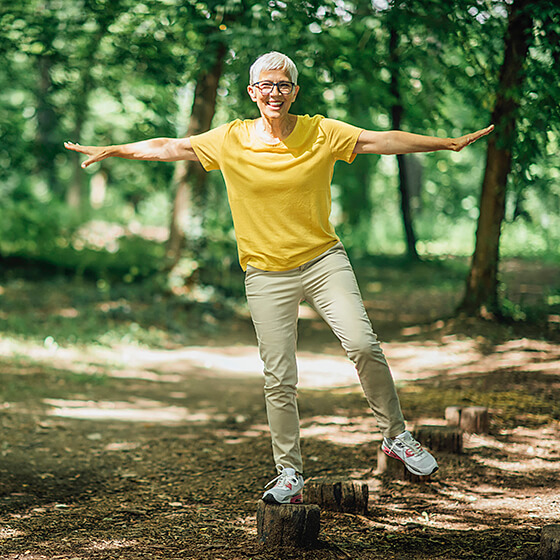Balance issues can be dangerous as they pose a significant risk for falls. Several conditions may cause balance issues from cognitive disabilities to damaged joints and other injuries. Caregivers should take active steps to address any movement concerns as soon as possible to minimize the risk of injury. Here are some concerns to address to keep your loved one safe.
Keep Terrain Accessible
If your loved one is exhibiting signs of movement issues due to age or physical deterioration, the first step is to ensure their environment is safe and accessible. By removing obstacles, specifically those that are difficult to be seen at night, you can minimize the risk of falling, especially at night. Small changes in elevation such as a rug or the threshold of a doorway can be trip hazards. Make sure to remove any objects that would trip a senior who is experiencing balance difficulties such as long furniture, chairs, shoes, and all other items on the floor.
Address Health Conditions
If you notice balance issues in your elderly loved one, it is time to book a doctor’s appointment. There are medical issues and conditions such as strokes, high blood pressure, inner ear damage, arthritis, impaired eyesight, and medications that can lead to dizziness. Speak to your loved one’s doctor to seek out potential treatments.
Assistive Devices
Assistive devices can be an effective tool in keeping your senior loved one safe and independent. Even if the condition worsens, assistive devices can help keep your loved one safe, upright, and feeling empowered. Assistive devices include walkers, canes, handles that are mounted to furniture or walls, and chairs that can elevate seniors to assist in standing. These devices allow for increased balance and independence.
Physio-Therapy Exercises
Regularly doing physical exercises that require balance will build the nerve connections that are necessary to balance body movement. Some activities include standing on one leg, walking heel-to-toe, practicing yoga, and performing tai-chi moves. Despite the regular physical exercise practice, some balance cannot be restored if it is due to an inner ear condition. Your elderly loved one may benefit from a consultation from their physician or physiotherapist.
Lifestyle Changes
Physical movement issues can be due to a combination of lifestyle-related conditions. Lack of physical fitness, high blood pressure, and high level of weight gain or loss can lead to body imbalance. If your elderly loved one is suffering from any of these conditions, it will be necessary to consult their doctor to create a plan to support their lifestyle changes. Seniors may need to avoid alcohol and increase their water intake to regulate their blood pressure. Discuss weight options with your doctor as being overweight or underweight can be dangerous and difficult to manage, however, monitoring their caloric and nutrition intake can help them navigate a healthy relationship with food.
Balance issues can be an issue with multi-faceted solutions. With support from their family and physician, they can be set up for success. If family support is not meeting the needs of your elderly loved one, hiring home care services can be an excellent source of support not only for the senior but also for their family. A professional caregiver can foster independence for the seniors and help relieve worry in their families.
We also recommend you check these related posts on family caregivers in our Home Care Services blog:

